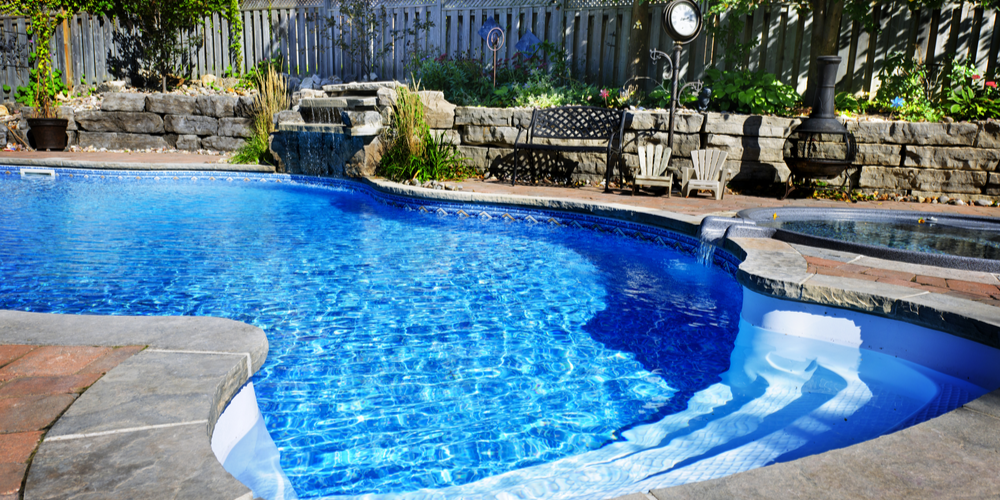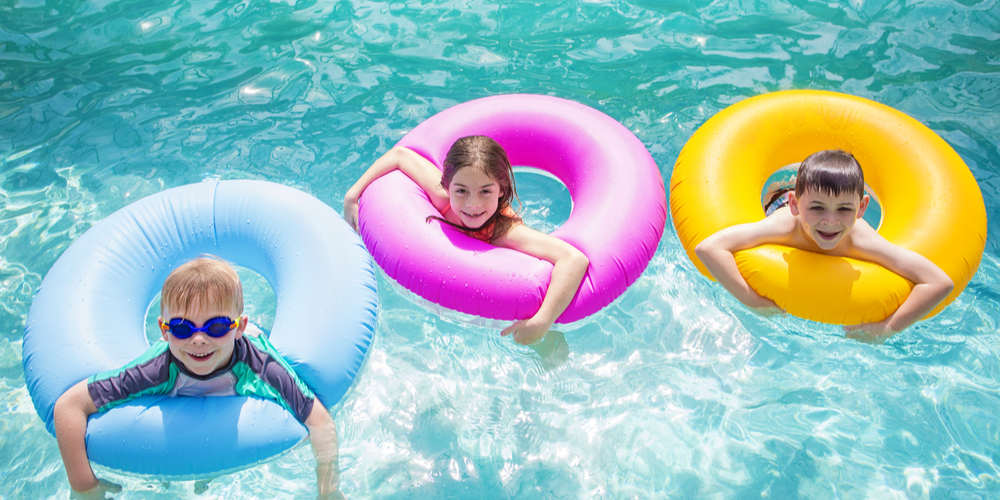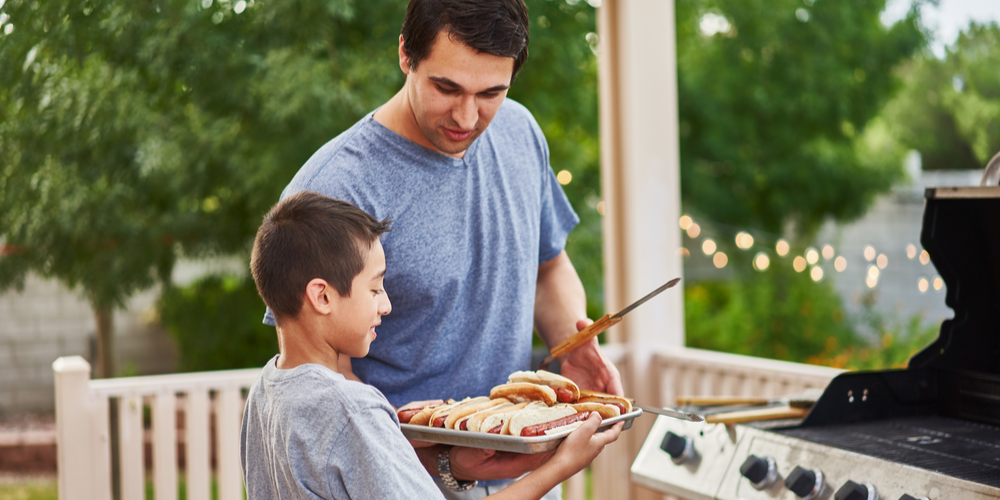
How to Have the Best New England Summer
Greetings!
It’s the start of another summer season and we hope that you and your family will have an enjoyable one. We’re sharing some ideas and information with you to keep everyone safe and happy while they are participating in all the outdoor activities that make summer in New England a wonderful season of the year.
- Can our business be held responsible for injuries or damage that results from serving alcohol?
- Is the current insurance program sufficient to address this concern?
- Is it necessary to purchase special insurance?
Kid-proof your home
We all know that kids and summer go together like macaroni and cheese, peanut butter and jelly or strawberries and shortcake. A few minutes spent inspecting potential dangers lurking in your back yard, garage or shed can save a whole lot of hurt and even medical expense. Face it, kids can be imaginative. And while we don’t want to stunt their creative play, we don’t want them taking unnecessary risks either.
Kid-proof your pool
* Make sure your fence enclosure is at least 4 feet high with no openings over 3 inches.
* Be sure the inside latch for the gate is at least 56 inches from the bottom.
* Check closing and self-latching gate; install a lock and keep it locked when the pool is not in use.
* Don’t leave any lawn furniture or objects children can climb to get over the fence and into the pool area.
* Consider computer-operated pool alarms that are set off remotely in your home by ripples in the pool.
* Consider personal pool alarms that attach to the arm of a child and are set off inside the home by exposure to water.
* Learn how to apply child and adult CPR. Your local fire department has information about courses.
* Keep a cell or cordless phone in easy reach in the pool area in case of emergencies. Seconds count in drowning cases.
* Please make it a rule in your family that children never swim alone or when there is no adult to supervise them.
Source: U.S. Consumer Product Safety Commission. For more pool safety and product safety information. Go to www.poolsafely.gov

Keep on grillin’
| Summer entertaining is a lot of fun. So keep it that way through proper inspection and use of your propane or charcoal grills. Kids need to understand the risks of playing around a grill and the need to establish a “No Play Zone” in its vicinity. And most important: NEVER LEAVE THE GRILL UNATTENDED.
· Position your grill at least 3 feet from the house, shrubs, branches, play objects, and other flammable objects in the yard. Make sure the grill is stable on a level surface so it won’t easily tip over. · Check the gas grill connection line between the propane tank and the fuel line to make sure it is not leaking. · Don’t keep a spare tank near the grill. Only use the standard 3 prong tank, NOT the old 5 prong type tank. · Do not use a match to check for gas grill leaks; if you detect a leak, immediately turn off the gas, and don’t use grill until it is fixed. · Use long-handled utensils to avoid burns. · Consider placing a grill mat or splatter pad beneath the grill to catch grease that misses the drip pan. · Wear safe clothing. Clothing that has loose shirt-tails, frills, floppy sleeves or apron strings can catch fire. Use flame retardant oven mitts to pick up hot items, open the lid or adjust vents. · Do not bring your lit barbecue grill indoors or into any unventilated space; it will become both a fire and carbon monoxide hazard! · Never try to move a hot grill. It is easy to drop it or tip it over. Serious burns could result. For more information about grill safety and other home hazard issues visit NFPA.org |
Keep on chillin’
Picnics and camping trips are another source of summer fun. And nothing can ruin the fun faster than a bout with food borne illnesses. Some planning will help prevent these issues and maybe a trip to an emergency room.
* Bacteria begin to multiply between 40 and 140 degrees Fahrenheit. So it’s important to keep the food either cold or hot right up to the minute of cooking or serving.
* Make sure your cooler will keep foods at 40 degrees or plan to bring foods that are less perishable, like whole fruits and vegetables, cheese, peanut butter, etc. Store drinks separately since they will be accessed more frequently.
* Don’t partially pre-cook meat or poultry. If you must pre=cook, cook until done and then pack in the cooler after the food has thoroughly cooled.
* Carry the cooler inside the car rather than the hot trunk to take advantage of your air conditioning.
* If you’re taking hot foods like a casserole, wrap them in aluminum foil and towels to keep them above 140 degrees. If it’s a long trip, better skip the hot dish.
* Take-out foods, such as fried chicken, should be eaten within 2 hours of purchase.
* Take out only as much food as you are going to cook right then. When the meat is cooked, transfer to a clean plate or platter. Never place the cooked meat where the raw meat was placed.
* Never reuse marinades that were in contact with raw meat, fish or poultry. Don’t put the cooked meat back onto an unwashed dish or marinade container.
* The USDA recommends cooking meats fully to destroy bacteria. In most cases that temperature is between 160 and 180 degrees. Use a meat thermometer to test.
A good source for more picnic and barbeque information and recipes can be found at food safety.gov
If you plan on doing significant entertaining this summer or if your yard is the gathering place for the neighborhood kids, consider adding an Umbrella Liability policy to protect your family. It covers claims and damages for injuries over and above the limits in your Homeowners Policy. Stop by or call us at 508-528-3310 or toll-free at 888-528-3310.
DID YOU KNOW
We just bought a boat.Where can I go to find safety information?
A good site to check out is discover boating.com
My boat is covered by homeowners policy isn’t it?
Your homeowners policy provides only limited coverage for your boat. You may need a boat policy. Give us a call to discuss options and costs.
How can we protect our pets this summer?
Hot weather is hard on pets as well as people. Try to exercise pets in the early morning or late evening when the weather is cool. Keep pets safely at home versus taking them in the car. The inside of a car can heat up to 110 degrees in 10 minutes on an 80 degree day even with the windows slightly open. Your pet could be in danger even on a moderately hot day.
Think twice before bringing your dog to the beach or park on very hot days. When there is not enough shade or access to water, they can quickly become dehydrated. When taking pets for walks on hot days, be sure to pack plenty of water for you and them!
Remember, breeds with short noses like Pugs and Persians are more susceptible to breathing difficulty in hot weather.If your pet exhibits the following signs, please contact your veterinarian and animal emergency service. These are signs of heat stroke which can prove fatal: excessive panting, vomiting, tiring easily, diminished appetite and lethargy.
We plan on camping and hiking this summer with our kids. Any special precautions we should take ?
Yes. The National Safe Kids Association recommends:
* Always carry a first aid kit and know how to use it
* Use the Buddy System
* Make sure someone knows your plans each day
* Use sunscreen and insect repellent
* Check for ticks and insect bites several times daily
* Carry plenty of water and high energy snacks
* Don’t drink water from lakes or streams
* Don’t touch wild animals
* Don’t eat wild berries or mushrooms
* Never leave a campfire unattended
* Never leave children alone around a campfire
* Keep a shovel and bucket of water near campfire
* Know your limitations and don’t over-do it.
Go to www.safekids.org for more safety tips.
We are planning a vacation at a pond. What should we tell our kids about swimming safety?
The American Red Cross offers these important tips:
* Make sure everyone in the family knows how to swim. It is not too late to sign up for age-appropriate Red Cross approved courses in swimming and water safety.
* Use the buddy system so no one swims alone
* Swim only in designated areas, preferably supervised by lifeguards
* Do not depend on flotation devices. Young children or inexperienced swimmers should wear U.S. Coast Guard approved life jackets
* Do not trust your child’s life to another child. Insist on constant adult supervision
* Teach children to ask permission to go near the water
* Limit the amount of sun exposure and reapply sunscreen between swimming sessions
* Drink plenty of water and avoid alcohol and caffeine beverages.
For more information, visit the Red Cross website
IMPORTANT REMINDER!
The Franklin Fire Department reminds residents that possessing or using fireworks is illegal in Massachusetts. Even Class C fireworks, including sparklers, party poppers, snappers, firecrackers, spinners, and cherry bombs are illegal. Sparklers burn at 1800 degrees Fahrenheit and can cause horrific burns. It is also illegal to transport fireworks into the state even if purchased legally in another state.
Anyone caught selling fireworks may face $100 to $1000 fines and up to one year in jail. People caught with fireworks may be fined $10 to $100 and the fireworks will be confiscated.



